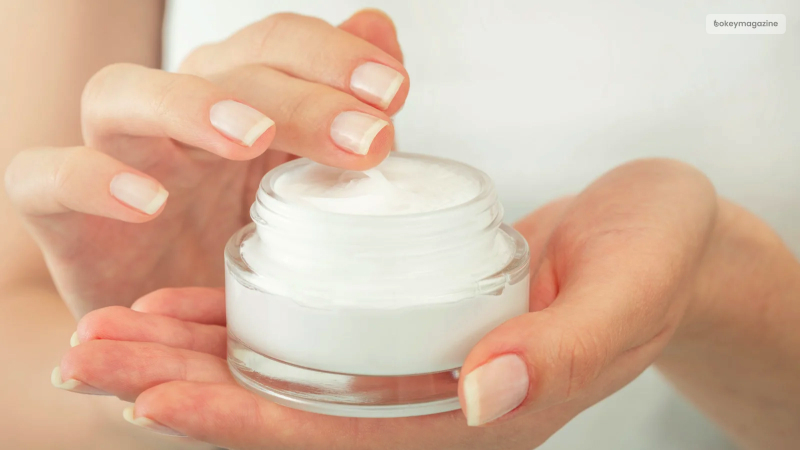
Is It Okay To Use Moisturizer For Oily Skin?
As someone with oily skin, I’ve often wondered, ‘Is moisturizer good for oily skin?’ or if it exacerbates the problem. It’s a common dilemma that many of us with shiny, blemish-prone complexions face.
Maybe because the idea of adding more moisture to already oily skin might seem counterintuitive. This is why many of us skip this crucial step in our skincare routine.
But here’s the scoop: moisturizing isn’t just for dry skin. In fact, it can be a game-changer for oily skin, too. In this article, I’ll dive deep into the pros and cons of using moisturizer on oily skin and offer expert advice to help my fellow oily-skin girlies find the right moisturizer for their unique skin types.
Understanding Oily Skin
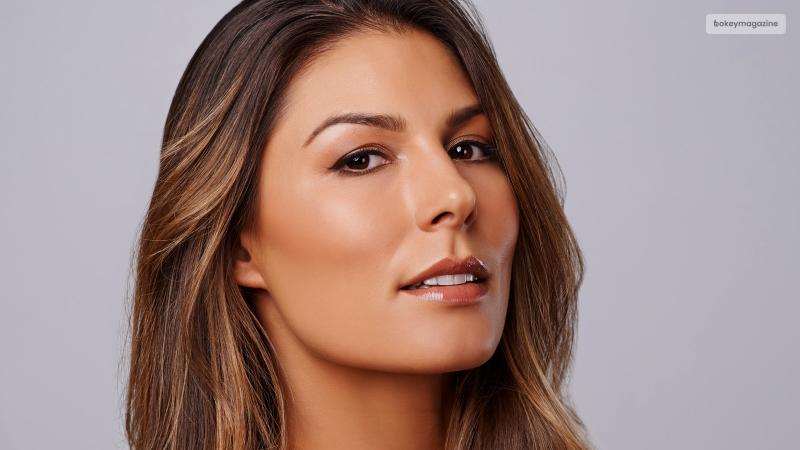
An overproduction of sebum leads to what we know as oily skin. It is the natural oil that the sebaceous glands located under the skin’s surface produce to keep it hydrated and healthy. Sebum is essential for keeping your skin hydrated and protecting it from environmental damage.
However, when these glands become overactive, they produce excess oil. This excess oil can lead to a shiny, greasy appearance, enlarged pores, and an increased risk of breakouts. While oily skin can be a frustrating condition, it’s actually a sign that your skin is working hard to maintain its natural balance.
So, Is Moisturizer Good For Oily Skin?
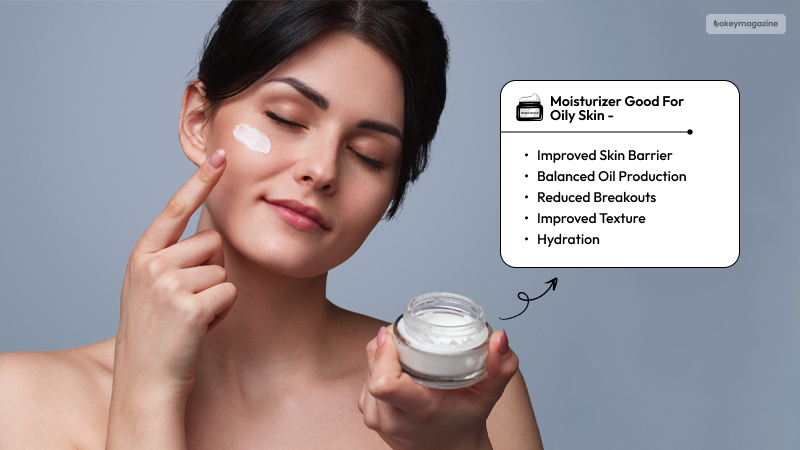
Regardless of skin type, moisturizing is essential in any skincare routine. Even if you have oily skin, your complexion still needs hydration to function at its best. Skipping moisturizer can backfire, causing your skin to produce even more oil in an attempt to compensate for the lack of moisture. Here are some more reasons why you should use a moisturizer:
- Improved Skin Barrier: A good moisturizer can help strengthen your skin’s natural barrier, which can become compromised by excessive oil production and environmental stressors. A strengthened barrier means better protection against irritation and dehydration.
- Balanced Oil Production: Paradoxically, using the right moisturizer can help regulate your skin’s oil production. When your complexion is properly hydrated, it won’t need to overcompensate by producing excess sebum.
- Reduced Breakouts: Many moisturizers formulated for oily skin contain ingredients like salicylic acid or benzoyl peroxide, which can help unclog pores and prevent breakouts.
- Improved Texture: Using the right moisturizer can help improve your skin’s overall texture and appearance, making it look smoother and more even.
- Hydration: All skin types need hydration. Moisturizers help maintain the skin’s moisture barrier, preventing it from becoming dehydrated. When your skin is well-hydrated, it can actually help regulate oil production.
Cons of Using Moisturizer on Oily Skin
While moisturizers are generally beneficial, there are some potential downsides to be aware of. These are as follows:
- Breakouts: Using the wrong type of moisturizer can clog pores and lead to breakouts. This is especially true for products that contain heavy oils or comedogenic ingredients.
- Greasy Feel: Some moisturizers can feel heavy or greasy on the skin, which can be uncomfortable and make your skin look shinier than it already is.
- Over-moisturizing: Applying too much moisturizer can overwhelm your skin, leading to an imbalance in oil production. This can make your skin feel oily and congested.
- Allergic Reactions: Some moisturizers contain fragrances, preservatives, or other ingredients that can cause allergic reactions or irritation, particularly if you have sensitive skin. Always do a patch test before using a new product to check for adverse reactions.
How To Find the Right Moisturizer for Oily Skin?
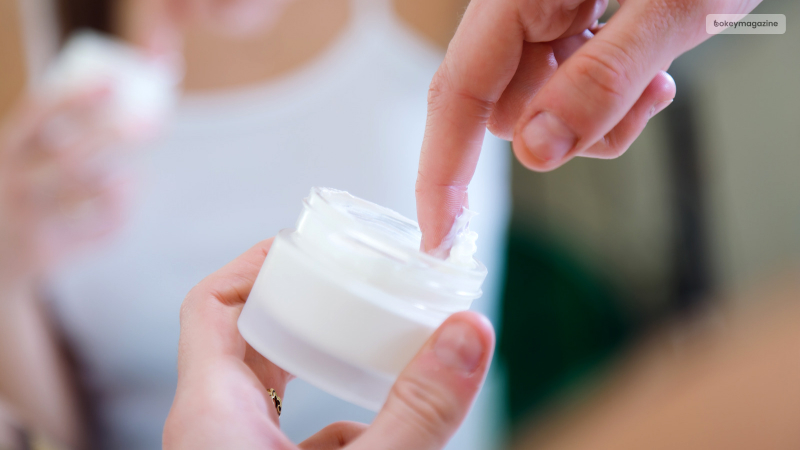
When choosing a moisturizer for oily skin, it’s important to look for lightweight, oil-free formulas that won’t clog your pores. Look for ingredients like:
- Hyaluronic Acid: This humectant attracts and binds water to the skin, providing hydration without heaviness.
- Niacinamide: This vitamin B3 derivative can help regulate oil production and minimize the appearance of pores.
- Salicylic Acid: A beta-hydroxy acid that can help unclog pores and prevent breakouts.
- Glycerin: A humectant that draws moisture into the skin without leaving a greasy residue.
Avoid thick, creamy moisturizers, and those containing heavy oils like coconut or mineral oil. Instead, opt for gel-based or water-based formulas that will leave your skin feeling refreshed and balanced.
Tips for Applying Moisturizer on Oily Skin
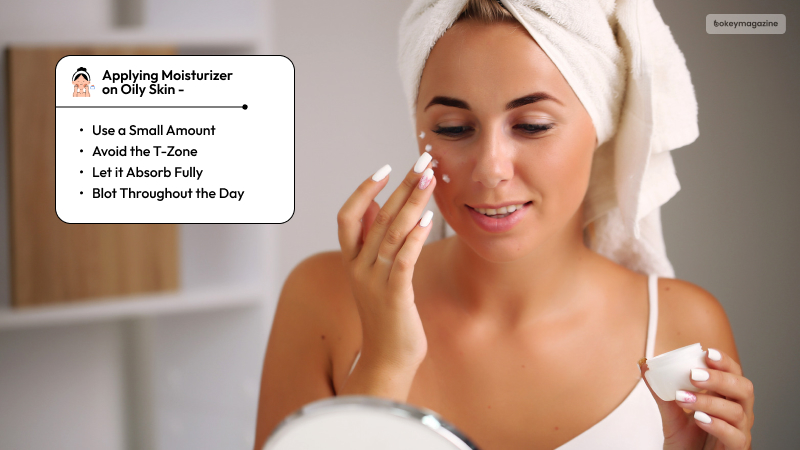
You can also follow the tips below while applying moisturizer on oily skin:
- Use a Small Amount: When it comes to moisturizing oily skin, less is often more. Apply just a pea-sized amount and distribute it evenly across your face.
- Avoid the T-Zone: Focus on applying moisturizer to the drier areas of your face, like the cheeks and forehead, and use a lighter touch on the oilier T-zone (forehead, nose, and chin).
- Let it Absorb Fully: Give your moisturizer a few minutes to fully sink into the skin before applying other products or makeup.
- Blot Throughout the Day: Carry blotting paper or a reusable blotting cloth with you to help control shine and excess oil throughout the day.
Additional Skincare Options for Oily Skin
In addition to using the right moisturizer, there are several other skincare steps you can take to manage oily skin:
- Double Cleansing: Start with an oil-based cleanser to remove makeup, sunscreen, and excess oil, followed by a water-based cleanser to cleanse the skin thoroughly.
- Exfoliating Regularly: Incorporating a gentle chemical exfoliant, like an AHA or BHA serum, can help unclog pores and slough off dead skin cells.
- Using Mattifying Products: Look for oil-absorbing powders, blotting papers, and mattifying primers to help control shine throughout the day.
- Incorporating Retinoids: Retinoids like retinol can help regulate oil production and improve the appearance of pores.
Is it Okay to Use Moisturizer For Oily Skin?
In conclusion, using moisturizer can be an important part of a healthy skincare routine for those with oily skin. While it’s true that some moisturizers can exacerbate shine and clogged pores, the right formula can actually help regulate oil production and improve the overall appearance of your complexion.
You can find a moisturizer that works seamlessly with your oily skin type by understanding the pros and cons and following the expert advice outlined in this article.
You May Also Like To Read:



















Post Your Comment